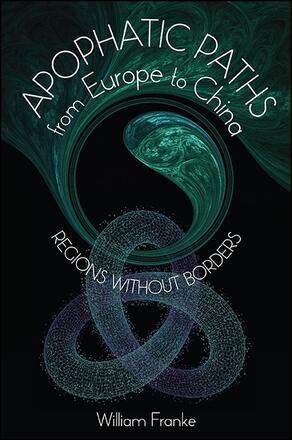
Apophatic Paths from Europe to China
Regions without Borders
Alternative formats available from:
An encounter between Franke’s philosophy of the unsayable and Eastern apophatic wisdom in the domains of poetry, thought, and culture.
Description
In Apophatic Paths from Europe to China, William Franke brings his original philosophy of the unsayable, previously developed from Western sources such as ancient Neoplatonism, medieval mysticism, and postmodern negative theology, into dialogue with Eastern traditions of thought. In particular, he compares the Daoist Way of Chinese wisdom with Western apophatic thought that likewise pivots on recognizing the nonexistent, the unthinkable, and the unsayable. Leveraging François Jullien's exegesis of the Chinese classics' challenge to rethink the very basis of life and consciousness, Franke proposes negative theology as an analogue to the Chinese model of thought, which has long been recognized for its special attunement to silence at the limits of language. Crucial to Franke's agenda is the endeavor to discern and renew the claim of universality, rethought and reconfigured within the predicament of philosophy today considered specifically as a cultural or, more exactly, intercultural predicament.
William Franke is Professor of Comparative Literature at Vanderbilt University and the author of many books, including A Philosophy of the Unsayable.
Reviews
"…Franke has made a great contribution, perhaps as great as a paradigmatic shift, to the area of Western-Chinese comparative philosophical and theological study, especially regarding the topic of transcendence versus immanence. The promising comparative framework that he sets in the book incubates a great potential for scholars' further exploration, and we therefore have good reason to wish for considerable growth of scholarship in this area. " — Journal of the American Academy of Religion
"Franke rethinks East-West philosophical traditions to show the subcurrents in Western thought that correspond to the centrality of apophasis in Chinese and Asian thought, whether it be the empty transcendent or the Way as indicator or allusion. He shows how apophatic thought confounds the transcendent-immanent duality and reworks it into an inseparability that can be consequential for our philosophical understanding of a 'natural' universality. " — Prasenjit Duara, author of The Crisis of Global Modernity: Asian Traditions and a Sustainable Future
"The broad coverage of William Franke's book is impressive as it discusses many issues in philosophy, religion, and literature, but at the same time it also has a clear focus and a special 'apophatic' approach to the various issues in the humanities. It is innovative, creative, and makes an important contribution to East-West comparative studies and cross-cultural understanding. Highly recommended. " — Zhang Longxi, author of From Comparison to World Literature
"Up to now François Jullien's conception of Chinese thought has not had a full representation in English. This book responds to that gap and opens a dialogue with other traditions of apophasis. " — Haun Saussy, author of Great Walls of Discourse and Other Adventures in Cultural China
"By highlighting Western phenomena that are comparable to the Chinese, mainly in the apophatic tradition, Franke succeeds in exposing the biases and blind spots in Jullien's as well as in Hall's and Ames's respective treatment of Chinese 'philosophy. ' This book will stand as an important resource for the future of scholarly debates in these areas. " — Karl-Heinz Pohl, editor of Chinese Thought in a Global Context: A Dialogue Between Chinese and Western Philosophical Approaches